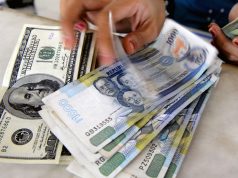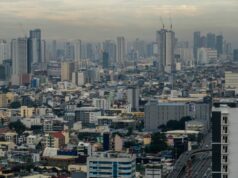Business sentiment slumps amid pandemic
BUSINESS confidence slumped in the first quarter, amid economic disruptions caused by the Taal Volcano eruption and the coronavirus disease 2019 (COVID-19) pandemic, a survey by the Bangko Sentral ng Pilipinas (BSP) showed.
The BSP’s business expectation survey (BES) showed the overall confidence index (CI) declined to 22.3% in January to March, from 40.2% in the fourth quarter of 2019.
The reading is the lowest since the 22% recorded in the fourth quarter of 2009 amid the global financial crisis.
However, the survey, which was conducted from Jan. 24 to Mar. 13 among 1,533 firms, does yet not take into account the impact of the enhanced community quarantine (ECQ) in Luzon which started on Mar. 17.
In a statement, the BSP said companies attributed the weaker business sentiment in the first quarter to the impact of the COVID-19 pandemic, African Swine Fever (ASF) outbreak and the Taal Volcano eruption.
Businesses were also concerned over the termination of the Visiting Forces Agreement with the United States, non-renewal of mining rights and travel bans due to the COVID-19 outbreak.
The companies surveyed also cited the drop in orders and lower volume of business activity and production, seasonal slack in demand after the holiday season, and low supply of raw materials and products.
“Across different types of trading firms (i.e., exporter, importer, dual-activity and domestic-oriented), business sentiment was less favorable for Q1 2020, except for exporters whose outlook was more optimistic,” the central bank said in a statement on Wednesday.
“In particular, their sentiment on the volume of business activity was less upbeat across sectors, except for construction on these periods,” it added.
Across sectors, business optimism was “less upbeat” for the first quarter, except construction firms that expected a boost in projects as part of the government’s “Build, Build, Build” program.
OUTLOOK
Meanwhile, business confidence for the second quarter appears to be more upbeat as CI rose to 42.3% from 40.3% in the previous quarter. This was attributed to expectations of higher sales, mainly in the community, finance, business, and trade sub-sectors; uptick in demand during the summer months and harvest season; expansion; and higher infrastructure spending.
Business outlook on the economy weakened for the next 12 months, as the CI dropped to 55.8% from 59.6 percent in the previous quarter.
“The less optimistic outlook of the respondents for the next 12 months was attributed to expectations of (a) unfavorable effects of the Taal eruption and virus outbreak, and (b) concerns on government policies (i.e., rice tariffication law, imposition of price caps on certain medicines, and possible imposition of safeguard duties on imported vehicles),” the central bank said.
The survey also showed the employment outlook index remained steady for the second quarter, but lower in the next 12 months, “which suggests that more firms indicated to continue hiring new employees for Q2.”
Companies’ expansion plans are also higher in the second quarter, but are expected to drop in the next 12 months.
“Sentiment on financial conditions, which was already in negative territory, slipped further to -12.2% for Q1 2020 from -5.4% in the previous quarter, the lowest reading since Q1 2010. This means that firms that expect tight financial conditions increased and continued to outnumber those that said otherwise during the quarter,” the BSP said.
The survey also showed companies expect the peso to appreciate, interest rates to fall, but inflation rate to quicken for the current and next quarter.
“Respondents predicted inflation to be at 2.9% for Q1 2020, 3% for Q2 2020, and 3.2% for the next 12 months (which was unchanged compared to the previous quarter’s survey results). Moreover, businesses anticipated that the peso-dollar rate will average at P50.9/US$1 for Q1 2020, P51.1/US$1 for Q2 2020 and P51.2/US$1 for the next 12 months,” the central bank said.
March saw headline inflation slow further to 2.5% from 2.6% in February and 3.3% a year ago, preliminary PSA data showed on Tuesday — LWTN



